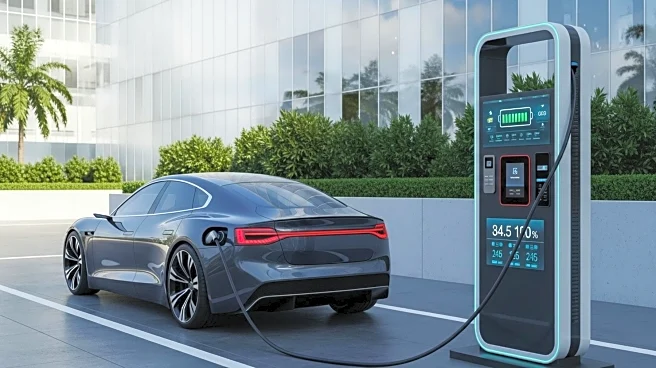What's Happening?
Kia is actively developing a battery passport system in anticipation of upcoming European Union regulations. The automaker is conducting its first public trial of the battery passport at a cellular level, which aims to provide detailed information about battery components. This initiative is part of Kia's broader strategy to comply with EU regulations that require transparency and traceability in battery manufacturing and usage. The battery passport is expected to enhance the understanding of battery lifecycle and sustainability, aligning with the EU's environmental goals.
Why It's Important?
The development of a battery passport by Kia is significant as it addresses the growing demand for transparency in the automotive industry, particularly concerning environmental impact. As the EU moves towards stricter regulations on battery components, automakers like Kia are compelled to innovate and adapt. This initiative could set a precedent for other manufacturers, potentially leading to industry-wide changes in how batteries are tracked and managed. The battery passport could also influence consumer trust and decision-making, as it provides insights into the sustainability and origin of battery materials.
What's Next?
Kia's trial of the battery passport is a preliminary step towards full implementation. As EU regulations come into effect, Kia and other automakers will likely expand their efforts to ensure compliance. This may involve collaborations with suppliers and technology partners to refine the battery passport system. Additionally, the industry may see increased investment in research and development to improve battery technology and sustainability. Stakeholders, including environmental groups and regulatory bodies, will be closely monitoring these developments to assess their impact on the automotive sector and environmental goals.
Beyond the Headlines
The introduction of battery passports could have broader implications for the automotive industry, including ethical considerations regarding the sourcing of battery materials. It may also lead to increased scrutiny of supply chains and push for more sustainable practices. Long-term, this initiative could contribute to a shift towards greener technologies and influence global standards for battery manufacturing and usage.









